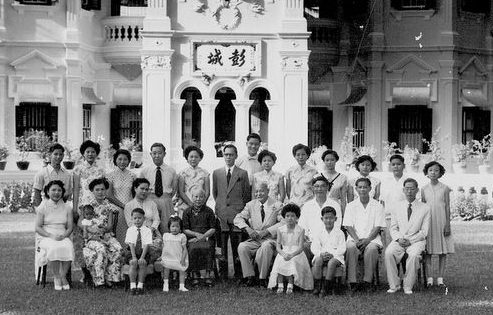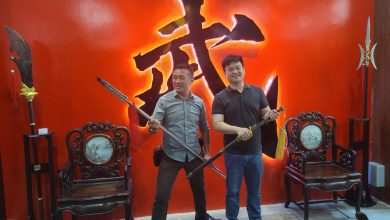Nostalgia: LAU EK CHING – Entrepreneur and Philanthropist


By Ian Anderson
Lau Ek Ching, born in 1880 in Fuzhou, Fujian province, to Cantonese parents, was one of the Chinese elite in Ipoh before the Second World War. Well educated, he soon became a multi-faceted entrepreneur, philanthropist and took a great interest in the “Affairs of State”.
As the Secretary and Attorney of Foo Choo Choon, dubbed “The Richest Chinaman in the World” Lau gained swift success as a tin miner and quickly became influential in the Perak Chamber of Commerce.


In 1924 he became a member of the Kinta Sanitary Board, from which position he was able to make his voice heard, forcefully lobbying the British Resident in 1925, to address the urgent problem of flooding in the town. Not wishing to stop there, he also became President of the Chinese Philanthropic Society and Honorary Secretary of the Perak Chinese Maternity Association. He was made Justice of the Peace in 1927 for his services to Perak.
Two years later, when the price of tin and rubber fell dramatically in 1929 Lau Ek Ching actively lobbied the government again, this time seeking action to overcome the difficulties experienced by the miners and planters.
Around the same time, Lau Ek Ching turned to property development while at the same time playing an influential role in the Town Planning Committee which was establishing the layout of the growing town. As a reward for his positive contribution to the development of Ipoh, he had a street named after him; the self-same street he built. It was a quiet and elegant neighbourhood of townhouses, which lies between Anderson Road and Cowan Street, and which became the homes of many rich businessmen in New Town. The Ruby Theatre was also custom-built for him and which he leased to the very experienced cinema manager, Ong Ee Lim.
English-educated and a Christian, he was buried in the Methodist cemetery on Connolly Road.
But there is a sting in the tail of this story. Towkay Lau Ek Ching had a mansion (almost a castle) built for himself and his family at Jalan Pasir Pinji, Ipoh. His children lived the ‘High Life’. European clothes, fancy cars and servants to attend to every whim. There were many parties in the mansion and by 1957, the year he Towkay passed away, there was not too much left in the bank and the mansion had started to deteriorate.
Consequently, in 1976, the condition was such that it required significant finance to bring it back to a safe and habitable state. Therefore, the Towkay’s granddaughter, Patricia, made the decision to sell the property for demolition. As they say, “Money never stays in a Chinese family for more than three generations!”


